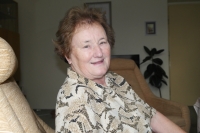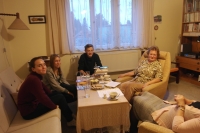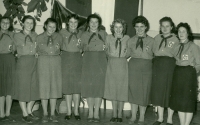First of all, do not succumb to pessimism

Stáhnout obrázek
Hana Ťukalová (née Novotná) was born on October 5, 1940 in Říčany. After completing compulsory schooling at primary school in Říčany, she wanted to continue to secondary school in Prague, but as the daughter of a tradesman, she was not allowed to do so. So she graduated from secondary pedagogical school in Litoměřice, where she lived in a boarding school until she was 17 years old. After finishing high school in 1958, she joined the elementary school group in Masaryk Square in Říčany as a teacher, and a year later she started teaching 4th and 5th grade at the National School. In 1966, she successfully completed her studies at the Faculty of Pedagogy of Charles University and got married the same year. In 1968, she was actively involved in protests against the Soviet occupation, which is why she was transferred to a school in Uhříneves in 1969. Moreover, in 1974 she had to cease education completely due to political reasons. For 10 years, she worked as a clerk in the office of the director of the Uhříněv school, in 1985 she moved to Říčany and started working in the field of medical supplies (today the company Sanitas). After the revolution, she returned as a teacher at primary school in Říčany, where she remained until her retirement. All her life, she and her husband had many friends around them, with whom they engaged in many activities and still hang out with today.




